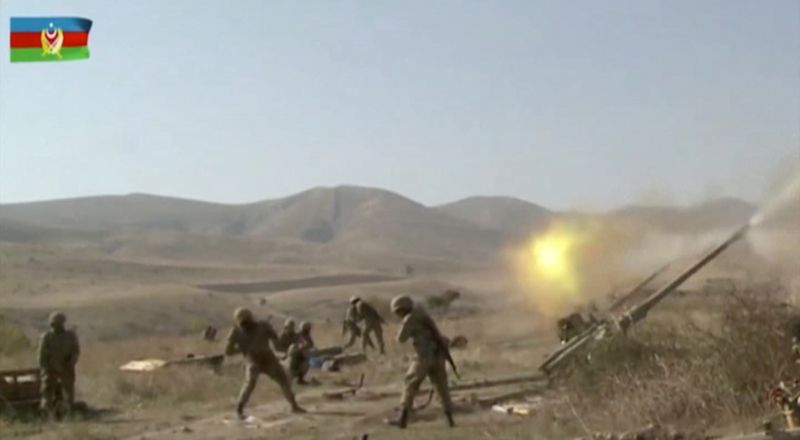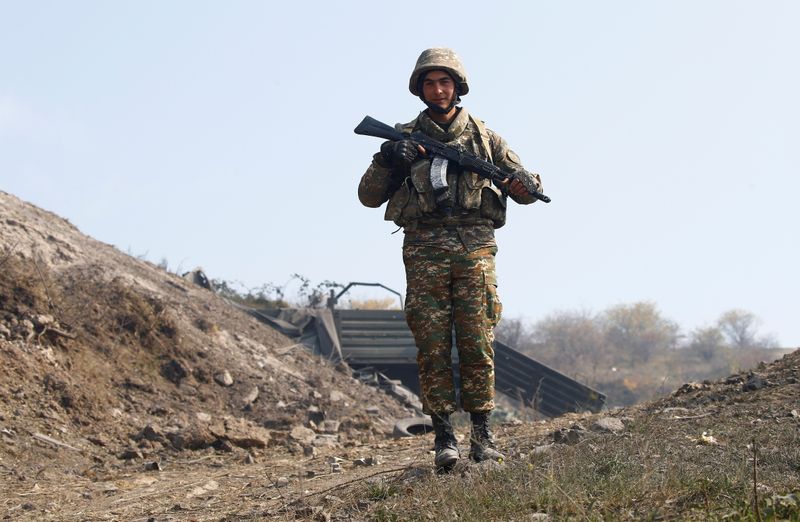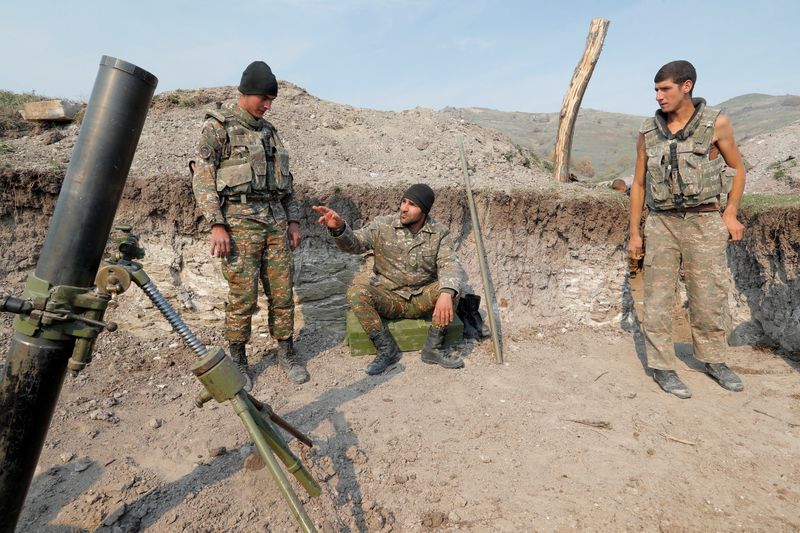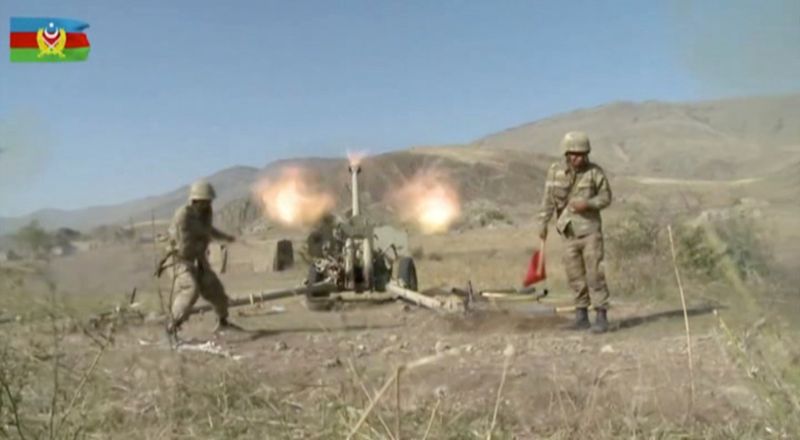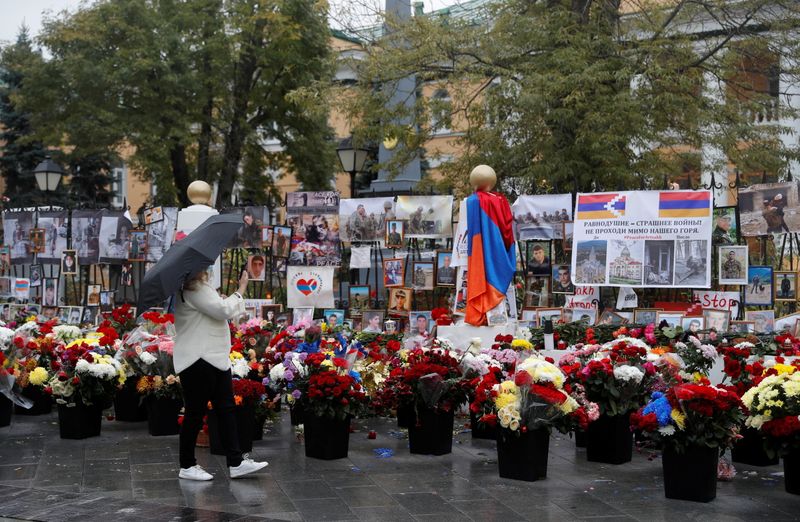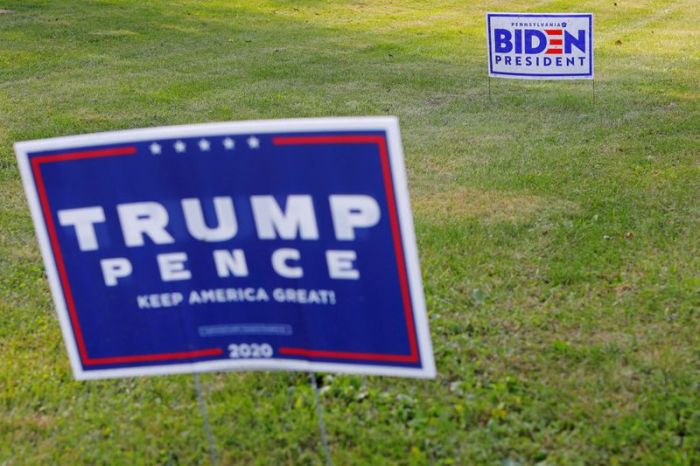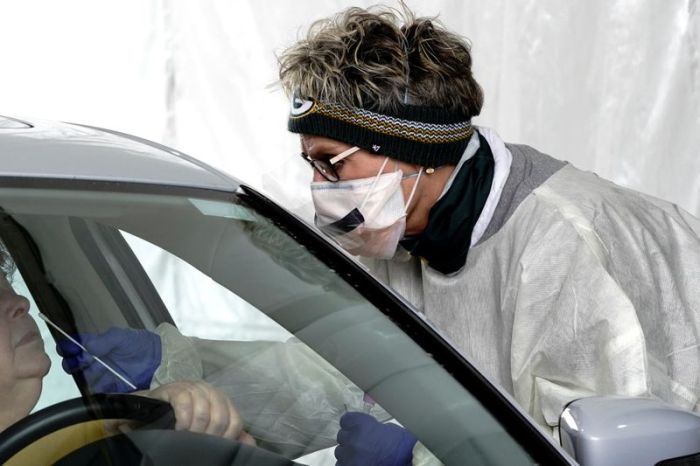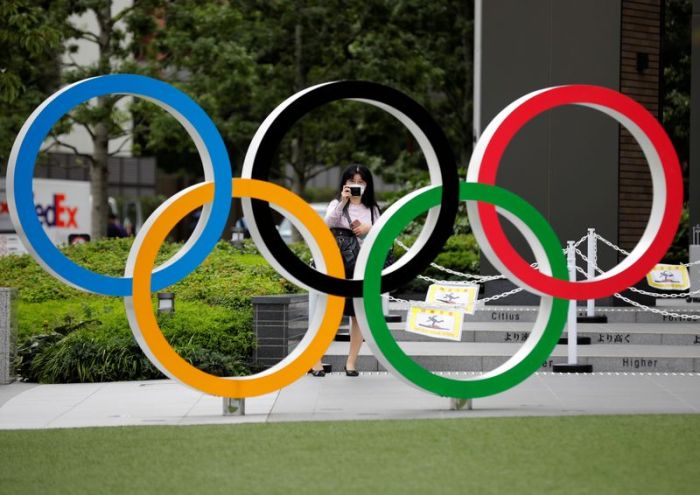YEREVAN/BAKU (Reuters) – Armenia and Azerbaijan said on Tuesday their foreign ministers would meet U.S. Secretary of State Mike Pompeo in Washington on Friday in efforts to end the heaviest fighting in Nagorno-Karabakh since the 1990s.
The State Department did not immediately comment. But the planned meetings suggest that, just before the U.S. presidential election, Washington is stepping up involvement in moves to calm a conflict that has killed hundreds of people since Sept. 27.
Russia has until now driven mediation efforts over Nagorno-Karabakh, a breakaway enclave within Azerbaijan that is controlled by ethnic Armenians, but two ceasefires brokered by Moscow this month have not stopped the fighting.
The two ex-Soviet republics said there was intense fighting in and around Nagorno-Karabakh on Tuesday, with the enclave reporting 43 more of its defence personnel had been killed.
The violence has raised fears that regional powers Turkey and Russia could be sucked into a wider conflict, and concern about the security of pipelines in Azerbaijan that carry natural gas and oil to world markets.
It was not immediately clear whether the warring sides’ foreign ministers would meet Pompeo separately or at the same time.
Azerbaijan said its foreign minister, Jeyhun Bayramov, would also meet envoys of the OSCE security and rights watchdog’s so-called Minsk Group, whose co-chairs Russia, France and the United States have for years led mediation in the conflict.
Armenia released few details about Foreign Minister Zohrab Mnatsakanyan’s plans in Washington.
Turkey is also part of the Minsk Group but has not been involved in mediation, and its relations with its NATO allies have been further strained by the fighting.
Ankara has denied accusations that it sent mercenaries from the conflicts in Syria and Libya to fight in Nagorno-Karabakh. It has stepped up arms sales to Azerbaijan this year but denies any direct involvement in the fighting.
MORE FIGHTING, ANGRY RHETORIC
In an interview, Armenian President Armen Sarkissian accused Turkey of destabilising the South Caucasus with its strong backing for Azerbaijan.
But he told France-24 television that he did not advocate military intervention by Russia, which has a defence pact with Armenia, or other countries that could lead to “another Syria.”
In comments to Azerbaijan’s parliament, Turkish Parliament Speaker Mustafa Sentop portrayed Armenia as the aggressor and criticised mediation by Paris, Moscow and Washington.
“If they are sincere on their path to peace, those who have held Armenia’s leash and supported it for years need to end this dangerous game now and stop supporting Armenia. Azerbaijan does not have another 30 years to wait,” Sentop said.
The Minsk Group, he said, “is brain dead”.
Turkey and Azerbaijan want an end to what they call Armenian occupation of Nagorno-Karabakh, and Azerbaijan wants Turkey involved in peacemaking. Armenia rules this out and accuses Azerbaijan of making a land grab.
In a speech to the nation, Azeri President Ilham Aliyev said Baku was willing to end fighting as soon as possible to complete the restoration of what it sees as its territorial integrity.
Officials in Nagorno-Karabakh reported new artillery battles on Tuesday and said fighting was intense in southern areas of the conflict zone.
Azerbaijan’s defence ministry also reported fighting in several areas, including disputed territory close to the line of contact dividing the sides. It said Armenian forces were shelling the Azeri regions of Terter and Aghdam.
Nagorno-Karabakh says 772 of its military and 37 civilians have been killed in the fighting since Sept. 27.
Azerbaijan says 61 Azeri civilians have been killed and 291 wounded, but has not disclosed its military casualties in the worst bloodshed since a 1991-94 war that killed about 30,000.
(Additional reporting by Margarita Antidze in Tbilisi and by Tuvan Gumrukcu in Ankara, Writing by Timothy Heritage, Editing by Peter Graff/Mark Heinrich)

